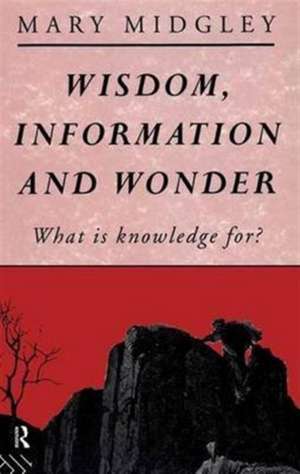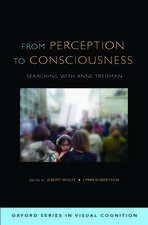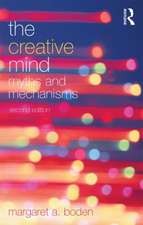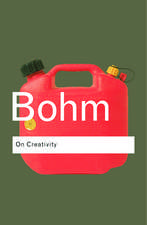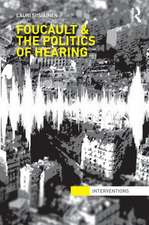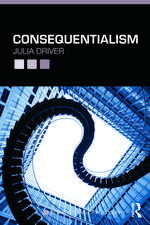Wisdom, Information and Wonder: What is Knowledge For?
Autor Mary Midgleyen Limba Engleză Hardback – 15 apr 2016
| Toate formatele și edițiile | Preț | Express |
|---|---|---|
| Paperback (1) | 368.76 lei 6-8 săpt. | |
| Taylor & Francis – 9 mai 1991 | 368.76 lei 6-8 săpt. | |
| Hardback (1) | 1109.18 lei 6-8 săpt. | |
| Taylor & Francis – 15 apr 2016 | 1109.18 lei 6-8 săpt. |
Preț: 1109.18 lei
Preț vechi: 1352.65 lei
-18% Nou
Puncte Express: 1664
Preț estimativ în valută:
212.24€ • 221.59$ • 175.66£
212.24€ • 221.59$ • 175.66£
Carte tipărită la comandă
Livrare economică 04-18 aprilie
Preluare comenzi: 021 569.72.76
Specificații
ISBN-13: 9781138141261
ISBN-10: 1138141267
Pagini: 286
Dimensiuni: 138 x 216 mm
Greutate: 0.45 kg
Ediția:1
Editura: Taylor & Francis
Colecția Routledge
Locul publicării:Oxford, United Kingdom
ISBN-10: 1138141267
Pagini: 286
Dimensiuni: 138 x 216 mm
Greutate: 0.45 kg
Ediția:1
Editura: Taylor & Francis
Colecția Routledge
Locul publicării:Oxford, United Kingdom
Notă biografică
Mary Midgley (1919-2018) was one of the most renowned moral philosophers of her generation and the author of many books, including Beast and Man, Wickedness and The Myths We Live By. She has taken part in many broadcast events, including The Moral Maze and Woman's Hour.
Recenzii
'The writing is fluid, clear and graceful ... a rewarding book to read.' - Social Science Quarterly
'Midgley is very good on the hidden moral agenda behind much "value free" science' - Times Literary Supplement
'Midgley bravely strives to re-assert the unfashionable idea that the search for knowledge in general and philosophy in particular ought to have something to do with the acquisition of wisdom by individuals and with our living better as individuals and as communities.' - Anthony O'Hear, Philosophy
'Our educatonal mentors would do well to heed the author's plea for a redress of the balance between understanding and mere accumulation of information.' - The Scientific & Medical Network
'Midgley is very good on the hidden moral agenda behind much "value free" science' - Times Literary Supplement
'Midgley bravely strives to re-assert the unfashionable idea that the search for knowledge in general and philosophy in particular ought to have something to do with the acquisition of wisdom by individuals and with our living better as individuals and as communities.' - Anthony O'Hear, Philosophy
'Our educatonal mentors would do well to heed the author's plea for a redress of the balance between understanding and mere accumulation of information.' - The Scientific & Medical Network
Cuprins
Part One CAN SPECIALIZATION DAMAGE YOUR HEALTH?; Chapter 1 Chapter One MOON-MONSTERS AND FREE PEOPLE; Chapter 2 Chapter Two WISDOM AND CONTEMPLATION; Chapter 3 Chapter Three THE CITY OF ORGANIZED THOUGHT AND ITS TOWN-PLANNERS; Part Two THE ROLE OF SCIENCE; Chapter 4 Chapter Four SCEPTICISM AND PERSONAL IDENTITY; Chapter 5 Chapter Five PERSONAL AND IMPERSONAL; Chapter 6 Chapter Six AUTONOMY AND ISOLATIONISM; Chapter 7 Chapter Seven RIGOUR AND THE NATURAL HISTORY OF CONTROVERSY; Chapter 8 Chapter Eight THE SECLUSION OF SCIENCE; Part Three THE ROLE OF PHILOSOPHY; Chapter 9 Chapter Nine CANPHILOSOPHY BE NEUTRAL?; Chapter 10 Chapter Ten THE WORK OF PURIFICATION; Chapter 11 Chapter Eleven THE PROBLEM OF THE UNKNOWN; Chapter 12 Chapter Twelve THE QUESTION OF CERTAINTY AND THE REAL PHILOSOPHICAL REVOLUTION; Chapter 13 Chapter Thirteen WHAT FOUNDATIONS ARE; Chapter 14 Chapter Fourteen MOORE AND THE WITHDRAWAL OF MORAL PHILOSOPHY; Chapter 15 Chapter Fifteen FACTS AND VALUES; Chapter 16 Chapter Sixteen THE FLIGHT FROM BLAME; Chapter 17 Chapter Seventeen THE CLASH OF SYSTEMS; Chapter 18 Chapter Eighteen EMPIRICISM AND THE UNSPEAKABLE; Chapter 19 Chapter Nineteen WHAT EMPIRICISM IS; Chapter 20 Chapter Twenty STYLE AND SUBSTANCE; Chapter 21 Chapter Twenty-One LANGUAGE FOR SOLITARIES; Chapter 22 Chapter Twenty-Two ESCAPING FROM SOLITUDE; Chapter 23 Chapter Twenty-Three PHILOSOPHIZING OUT IN THE WORLD SUGGESTIONS FOR FURTHER READING NOTES INDEX;
Descriere
In this book one of Britain's leading popular philosophers tackles a question that is at the root of our civilization: What is knowledge for?
